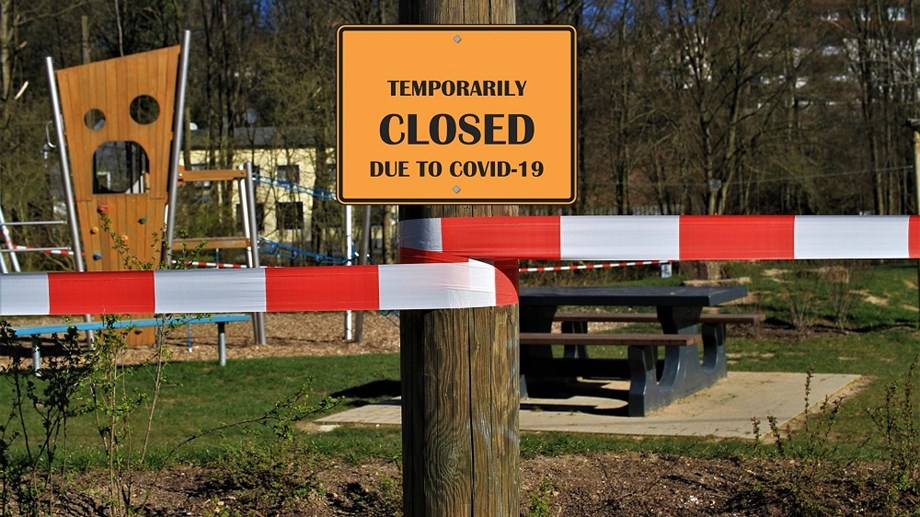
South African President Cyril Ramaphosa on Thursday announced a reduction in COVID-19 lockdown from Friday to Level one of a five-level approach, following a drop in the number of coronavirus infections in the country.
Speaking in a national broadcast, Ramaphosa said this had been decided due to the reduced number of infections, although the number of deaths still remained a concern.
Ramaphosa also gave details on the intensification of the country’s national vaccination campaign; the introduction of a vaccination certificate; and his interaction with British Prime Minister Boris Johnson to lift the ban on travel, tourism and trade.
“A few days ago, the South African COVID-19 Modelling Consortium confirmed that South Africa has emerged from a third wave of COVID-19 infections. This wave, which was driven by the Delta variant, was far more severe than the previous two waves. This third wave lasted more than 130 days, and was about two weeks longer than each of the earlier waves,” Ramaphosa said.
At the peak of the third wave, around 20,000 new cases were being recorded daily, but this has come down to an average of about 1,800 a day in the past week. There are also sustained decreases in COVID-19 hospitalisations and deaths in all provinces.
“This is news that is welcome to all of us. We have been living under the shadow of the pandemic for 574 days now, and all of us have taken strain,” the president said.
The most important changes to the new Level One regulations are a shorter curfew time from midnight to 4 am., and larger crowds being allowed at indoor and outdoor events.
Attendance at indoor events is trebled from 250 to 750 and at outdoor events quadrupled from 500 to 2000. Venues with smaller capacities will only be allowed to use 50 per cent of its capacity.
This includes religious gatherings, but while attendance at funerals has been doubled to 100, the prohibition on night vigils and after-tears parties remains, as these had been proven to be super spreaders, Ramaphosa said.
He shared that one fifth of South Africa’s adult population had now been vaccinated, but that a lot more needed to be done to avert a predicted fourth wave by December or January.
“We have set ourselves the target of vaccinating 70 per cent of the adult population in South Africa by the end of the year. If we reach this target, the Department of Health estimates that we could save up to 20,000 lives,” he said.
“To reach our goal we need to administer an additional 16 million vaccine doses this year, which amounts to around 250,000 first dose vaccinations every single workday of every week until mid-December,” Ramaphosa said, urging citizens to take advantage of the ‘Vooma Vaccination Weekends’ campaign starting countrywide this weekend, to assist those working during the week to get their vaccinations.
The president said that the Department of Health would soon be rolling out a vaccination certificate, which will provide a secure and verifiable proof of vaccination.
“It can be used to facilitate travel, access to establishments and gatherings and other forms of activity that require proof of vaccination status. Streamlining and standardising proof of vaccination will also go a long way towards getting a number of international travel restrictions both from and into our country eased,” he said.
Ramaphosa also commented on the travel ban by the UK.
“The United Kingdom imposed a travel ban on South Africans by red listing our country. This has put us in a disadvantaged position, since the United Kingdom is South Africa’s biggest source of tourism from the northern hemisphere and a significant trading partner,” he said.
The president said while UK scientists were concerned about the presence of the Beta variant in South Africa, the reality was that the Delta variant was now by far the dominant variant in the country.
“Earlier today I had a call with the British Prime Minister Boris Johnson to discuss this matter. I put South Africa’s case to him, which he understood very well. We both agreed that decisions of this nature should be informed by science and are hopeful of a positive outcome when the issue comes up for review in the coming days,” Ramaphosa said.
(This story has not been edited by Devdiscourse staff and is auto-generated from a syndicated feed.)
from WordPress https://ift.tt/3D4zzjQ
via IFTTT

No comments:
Post a Comment